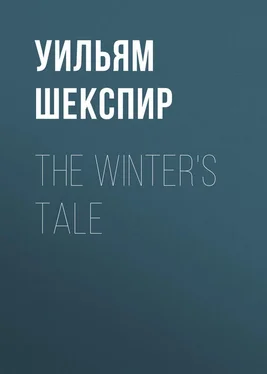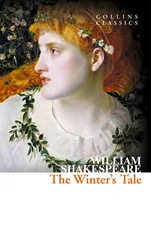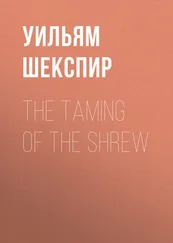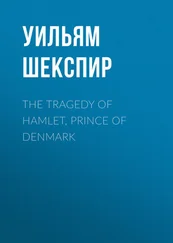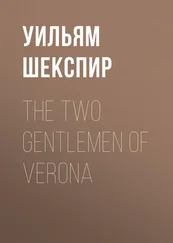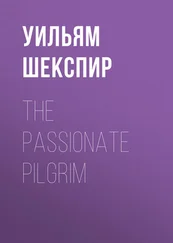Уильям Шекспир - The Winter's Tale
Здесь есть возможность читать онлайн «Уильям Шекспир - The Winter's Tale» — ознакомительный отрывок электронной книги совершенно бесплатно, а после прочтения отрывка купить полную версию. В некоторых случаях можно слушать аудио, скачать через торрент в формате fb2 и присутствует краткое содержание. Издательство: Иностранный паблик, Жанр: Европейская старинная литература, Драматургия, foreign_dramaturgy, на английском языке. Описание произведения, (предисловие) а так же отзывы посетителей доступны на портале библиотеки ЛибКат.
- Название:The Winter's Tale
- Автор:
- Издательство:Иностранный паблик
- Жанр:
- Год:неизвестен
- ISBN:нет данных
- Рейтинг книги:4 / 5. Голосов: 1
-
Избранное:Добавить в избранное
- Отзывы:
-
Ваша оценка:
- 80
- 1
- 2
- 3
- 4
- 5
The Winter's Tale: краткое содержание, описание и аннотация
Предлагаем к чтению аннотацию, описание, краткое содержание или предисловие (зависит от того, что написал сам автор книги «The Winter's Tale»). Если вы не нашли необходимую информацию о книге — напишите в комментариях, мы постараемся отыскать её.
The Winter's Tale — читать онлайн ознакомительный отрывок
Ниже представлен текст книги, разбитый по страницам. Система сохранения места последней прочитанной страницы, позволяет с удобством читать онлайн бесплатно книгу «The Winter's Tale», без необходимости каждый раз заново искать на чём Вы остановились. Поставьте закладку, и сможете в любой момент перейти на страницу, на которой закончили чтение.
Интервал:
Закладка:
To better purpose.
HERMIONE. Never?
LEONTES. Never but once.
HERMIONE. What! Have I twice said well? When was't before?
I prithee tell me; cram's with praise, and make's
As fat as tame things. One good deed dying tongueless
Slaughters a thousand waiting upon that.
Our praises are our wages; you may ride's
With one soft kiss a thousand furlongs ere
With spur we heat an acre. But to th' goal:
My last good deed was to entreat his stay;
What was my first? It has an elder sister,
Or I mistake you. O, would her name were Grace!
But once before I spoke to th' purpose- When?
Nay, let me have't; I long.
LEONTES. Why, that was when
Three crabbed months had sour'd themselves to death,
Ere I could make thee open thy white hand
And clap thyself my love; then didst thou utter
'I am yours for ever.'
HERMIONE. 'Tis Grace indeed.
Why, lo you now, I have spoke to th' purpose twice:
The one for ever earn'd a royal husband;
Th' other for some while a friend.
[Giving her hand to POLIXENES]
LEONTES. [Aside] Too hot, too hot!
To mingle friendship far is mingling bloods.
I have tremor cordis on me; my heart dances,
But not for joy, not joy. This entertainment
May a free face put on; derive a liberty
From heartiness, from bounty, fertile bosom,
And well become the agent. 'T may, I grant;
But to be paddling palms and pinching fingers,
As now they are, and making practis'd smiles
As in a looking-glass; and then to sigh, as 'twere
The mort o' th' deer. O, that is entertainment
My bosom likes not, nor my brows! Mamillius,
Art thou my boy?
MAMILLIUS. Ay, my good lord.
LEONTES. I' fecks!
Why, that's my bawcock. What! hast smutch'd thy nose?
They say it is a copy out of mine. Come, Captain,
We must be neat- not neat, but cleanly, Captain.
And yet the steer, the heifer, and the calf,
Are all call'd neat. – Still virginalling
Upon his palm? – How now, you wanton calf,
Art thou my calf?
MAMILLIUS. Yes, if you will, my lord.
LEONTES. Thou want'st a rough pash and the shoots that I have,
To be full like me; yet they say we are
Almost as like as eggs. Women say so,
That will say anything. But were they false
As o'er-dy'd blacks, as wind, as waters- false
As dice are to be wish'd by one that fixes
No bourn 'twixt his and mine; yet were it true
To say this boy were like me. Come, sir page,
Look on me with your welkin eye. Sweet villain!
Most dear'st! my collop! Can thy dam? – may't be?
Affection! thy intention stabs the centre.
Thou dost make possible things not so held,
Communicat'st with dreams- how can this be? -
With what's unreal thou coactive art,
And fellow'st nothing. Then 'tis very credent
Thou mayst co-join with something; and thou dost-
And that beyond commission; and I find it,
And that to the infection of my brains
And hard'ning of my brows.
POLIXENES. What means Sicilia?
HERMIONE. He something seems unsettled.
POLIXENES. How, my lord!
What cheer? How is't with you, best brother?
HERMIONE. You look
As if you held a brow of much distraction.
Are you mov'd, my lord?
LEONTES. No, in good earnest.
How sometimes nature will betray its folly,
Its tenderness, and make itself a pastime
To harder bosoms! Looking on the lines
Of my boy's face, methoughts I did recoil
Twenty-three years; and saw myself unbreech'd,
In my green velvet coat; my dagger muzzl'd,
Lest it should bite its master and so prove,
As ornaments oft do, too dangerous.
How like, methought, I then was to this kernel,
This squash, this gentleman. Mine honest friend,
Will you take eggs for money?
MAMILLIUS. No, my lord, I'll fight.
LEONTES. You will? Why, happy man be's dole! My brother,
Are you so fond of your young prince as we
Do seem to be of ours?
POLIXENES. If at home, sir,
He's all my exercise, my mirth, my matter;
Now my sworn friend, and then mine enemy;
My parasite, my soldier, statesman, all.
He makes a July's day short as December,
And with his varying childness cures in me
Thoughts that would thick my blood.
LEONTES. So stands this squire
Offic'd with me. We two will walk, my lord,
And leave you to your graver steps. Hermione,
How thou lov'st us show in our brother's welcome;
Let what is dear in Sicily be cheap;
Next to thyself and my young rover, he's
Apparent to my heart.
HERMIONE. If you would seek us,
We are yours i' th' garden. Shall's attend you there?
LEONTES. To your own bents dispose you; you'll be found,
Be you beneath the sky. [Aside] I am angling now,
Though you perceive me not how I give line.
Go to, go to!
How she holds up the neb, the bill to him!
And arms her with the boldness of a wife
To her allowing husband!
Exeunt POLIXENES, HERMIONE, and ATTENDANTS
Gone already!
Inch-thick, knee-deep, o'er head and ears a fork'd one!
Go, play, boy, play; thy mother plays, and I
Play too; but so disgrac'd a part, whose issue
Will hiss me to my grave. Contempt and clamour
Will be my knell. Go, play, boy, play. There have been,
Or I am much deceiv'd, cuckolds ere now;
And many a man there is, even at this present,
Now while I speak this, holds his wife by th' arm
That little thinks she has been sluic'd in's absence,
And his pond fish'd by his next neighbour, by
Sir Smile, his neighbour. Nay, there's comfort in't,
Whiles other men have gates and those gates open'd,
As mine, against their will. Should all despair
That hath revolted wives, the tenth of mankind
Would hang themselves. Physic for't there's none;
It is a bawdy planet, that will strike
Where 'tis predominant; and 'tis pow'rfull, think it,
From east, west, north, and south. Be it concluded,
No barricado for a belly. Know't,
It will let in and out the enemy
With bag and baggage. Many thousand on's
Have the disease, and feel't not. How now, boy!
MAMILLIUS. I am like you, they say.
LEONTES. Why, that's some comfort.
What! Camillo there?
CAMILLO. Ay, my good lord.
LEONTES. Go play, Mamillius; thou'rt an honest man.
Exit MAMILLIUS
Camillo, this great sir will yet stay longer.
CAMILLO. You had much ado to make his anchor hold;
When you cast out, it still came home.
LEONTES. Didst note it?
CAMILLO. He would not stay at your petitions; made
His business more material.
LEONTES. Didst perceive it?
[Aside] They're here with me already; whisp'ring, rounding,
'Sicilia is a so-forth.' 'Tis far gone
When I shall gust it last. – How came't, Camillo,
That he did stay?
CAMILLO. At the good Queen's entreaty.
LEONTES. 'At the Queen's' be't. 'Good' should be pertinent;
But so it is, it is not. Was this taken
By any understanding pate but thine?
For thy conceit is soaking, will draw in
More than the common blocks. Not noted, is't,
But of the finer natures, by some severals
Of head-piece extraordinary? Lower messes
Perchance are to this business purblind? Say.
CAMILLO. Business, my lord? I think most understand
Bohemia stays here longer.
LEONTES. Ha?
CAMILLO. Stays here longer.
LEONTES. Ay, but why?
CAMILLO. To satisfy your Highness, and the entreaties
Of our most gracious mistress.
LEONTES. Satisfy
Th' entreaties of your mistress! Satisfy!
Let that suffice. I have trusted thee, Camillo,
With all the nearest things to my heart, as well
My chamber-councils, wherein, priest-like, thou
Hast cleans'd my bosom- I from thee departed
Thy penitent reform'd; but we have been
Deceiv'd in thy integrity, deceiv'd
In that which seems so.
CAMILLO. Be it forbid, my lord!
LEONTES. To bide upon't: thou art not honest; or,
If thou inclin'st that way, thou art a coward,
Which hoxes honesty behind, restraining
From course requir'd; or else thou must be counted
A servant grafted in my serious trust,
And therein negligent; or else a fool
That seest a game play'd home, the rich stake drawn,
And tak'st it all for jest.
CAMILLO. My gracious lord,
I may be negligent, foolish, and fearful:
In every one of these no man is free
But that his negligence, his folly, fear,
Among the infinite doings of the world,
Sometime puts forth. In your affairs, my lord,
If ever I were wilfull-negligent,
It was my folly; if industriously
I play'd the fool, it was my negligence,
Not weighing well the end; if ever fearful
To do a thing where I the issue doubted,
Whereof the execution did cry out
Against the non-performance, 'twas a fear
Which oft infects the wisest. These, my lord,
Are such allow'd infirmities that honesty
Is never free of. But, beseech your Grace,
Be plainer with me; let me know my trespass
By its own visage; if I then deny it,
'Tis none of mine.
LEONTES. Ha' not you seen, Camillo-
But that's past doubt; you have, or your eye-glass
Is thicker than a cuckold's horn- or heard-
For to a vision so apparent rumour
Cannot be mute- or thought- for cogitation
Resides not in that man that does not think-
My wife is slippery? If thou wilt confess-
Or else be impudently negative,
To have nor eyes nor ears nor thought- then say
My wife's a hobby-horse, deserves a name
As rank as any flax-wench that puts to
Before her troth-plight. Say't and justify't.
CAMILLO. I would not be a stander-by to hear
My sovereign mistress clouded so, without
My present vengeance taken. Shrew my heart!
You never spoke what did become you less
Than this; which to reiterate were sin
As deep as that, though true.
LEONTES. Is whispering nothing?
Is leaning cheek to cheek? Is meeting noses?
Kissing with inside lip? Stopping the career
Of laughter with a sigh? – a note infallible
Of breaking honesty. Horsing foot on foot?
Skulking in corners? Wishing clocks more swift;
Hours, minutes; noon, midnight? And all eyes
Blind with the pin and web but theirs, theirs only,
That would unseen be wicked- is this nothing?
Why, then the world and all that's in't is nothing;
The covering sky is nothing; Bohemia nothing;
My is nothing; nor nothing have these nothings,
If this be nothing.
CAMILLO. Good my lord, be cur'd
Of this diseas'd opinion, and betimes;
For 'tis most dangerous.
LEONTES. Say it be, 'tis true.
CAMILLO. No, no, my lord.
LEONTES. It is; you lie, you lie.
I say thou liest, Camillo, and I hate thee;
Pronounce thee a gross lout, a mindless slave,
Or else a hovering temporizer that
Canst with thine eyes at once see good and evil,
Inclining to them both. Were my wife's liver
Infected as her life, she would not live
The running of one glass.
CAMILLO. Who does her?
LEONTES. Why, he that wears her like her medal, hanging
About his neck, Bohemia; who- if I
Had servants true about me that bare eyes
To see alike mine honour as their profits,
Their own particular thrifts, they would do that
Which should undo more doing. Ay, and thou,
His cupbearer- whom I from meaner form
Have bench'd and rear'd to worship; who mayst see,
Plainly as heaven sees earth and earth sees heaven,
How I am gall'd- mightst bespice a cup
To give mine enemy a lasting wink;
Which draught to me were cordial.
CAMILLO. Sir, my lord,
I could do this; and that with no rash potion,
But with a ling'ring dram that should not work
Maliciously like poison. But I cannot
Believe this crack to be in my dread mistress,
So sovereignly being honourable.
I have lov'd thee-
LEONTES. Make that thy question, and go rot!
Dost think I am so muddy, so unsettled,
To appoint myself in this vexation; sully
The purity and whiteness of my sheets-
Which to preserve is sleep, which being spotted
Is goads, thorns, nettles, tails of wasps;
Give scandal to the blood o' th' Prince, my son-
Who I do think is mine, and love as mine-
Without ripe moving to 't? Would I do this?
Could man so blench?
CAMILLO. I must believe you, sir.
I do; and will fetch off Bohemia for't;
Provided that, when he's remov'd, your Highness
Will take again your queen as yours at first,
Even for your son's sake; and thereby for sealing
The injury of tongues in courts and kingdoms
Known and allied to yours.
LEONTES. Thou dost advise me
Even so as I mine own course have set down.
I'll give no blemish to her honour, none.
CAMILLO. My lord,
Go then; and with a countenance as clear
As friendship wears at feasts, keep with Bohemia
And with your queen. I am his cupbearer;
If from me he have wholesome beverage,
Account me not your servant.
LEONTES. This is all:
Do't, and thou hast the one half of my heart;
Do't not, thou split'st thine own.
CAMILLO. I'll do't, my lord.
LEONTES. I will seem friendly, as thou hast advis'd me. Exit
CAMILLO. O miserable lady! But, for me,
What case stand I in? I must be the poisoner
Of good Polixenes; and my ground to do't
Is the obedience to a master; one
Who, in rebellion with himself, will have
All that are his so too. To do this deed,
Promotion follows. If I could find example
Of thousands that had struck anointed kings
And flourish'd after, I'd not do't; but since
Nor brass, nor stone, nor parchment, bears not one,
Let villainy itself forswear't. I must
Forsake the court. To do't, or no, is certain
To me a break-neck. Happy star reign now!
Here comes Bohemia.
Интервал:
Закладка:
Похожие книги на «The Winter's Tale»
Представляем Вашему вниманию похожие книги на «The Winter's Tale» списком для выбора. Мы отобрали схожую по названию и смыслу литературу в надежде предоставить читателям больше вариантов отыскать новые, интересные, ещё непрочитанные произведения.
Обсуждение, отзывы о книге «The Winter's Tale» и просто собственные мнения читателей. Оставьте ваши комментарии, напишите, что Вы думаете о произведении, его смысле или главных героях. Укажите что конкретно понравилось, а что нет, и почему Вы так считаете.
